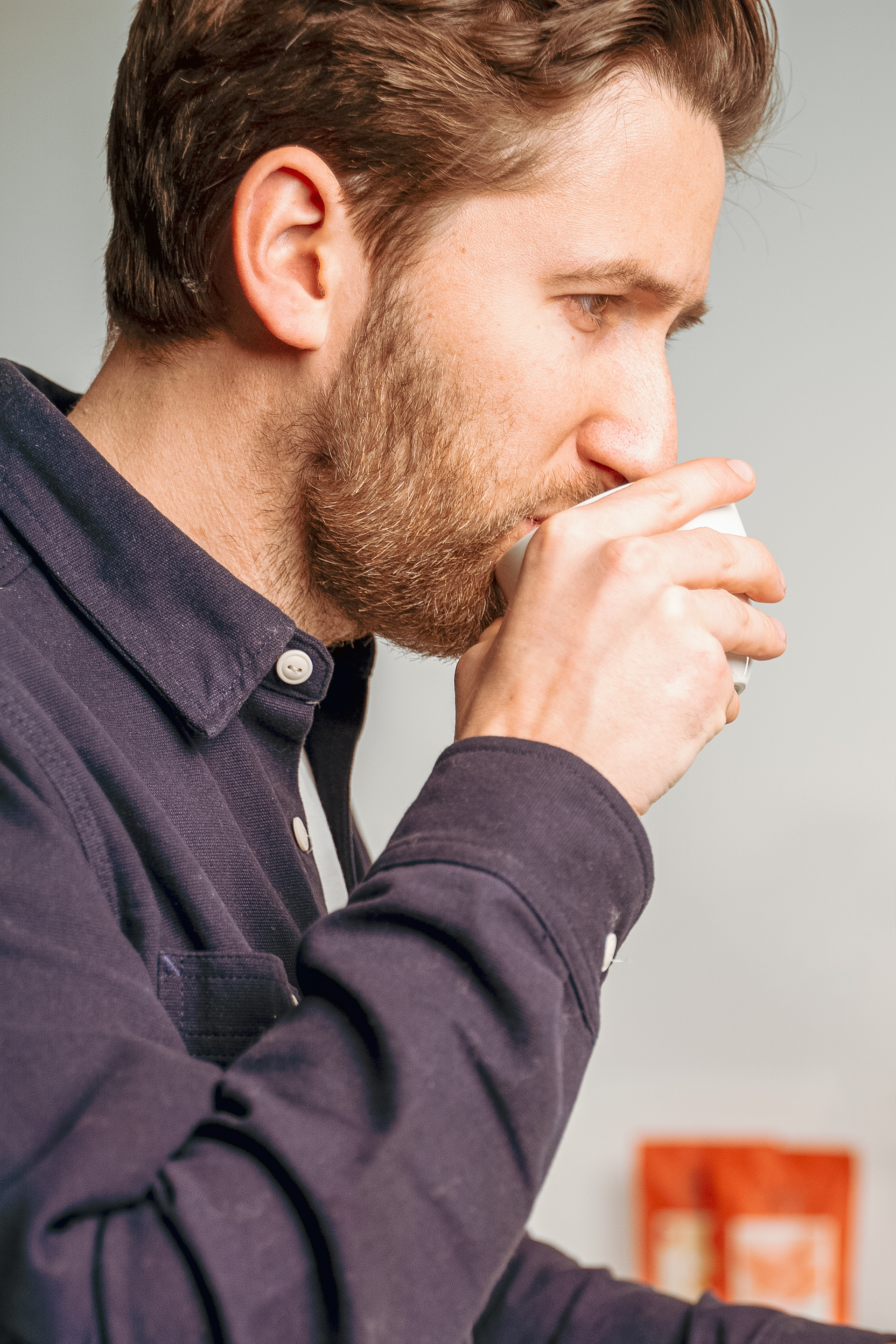
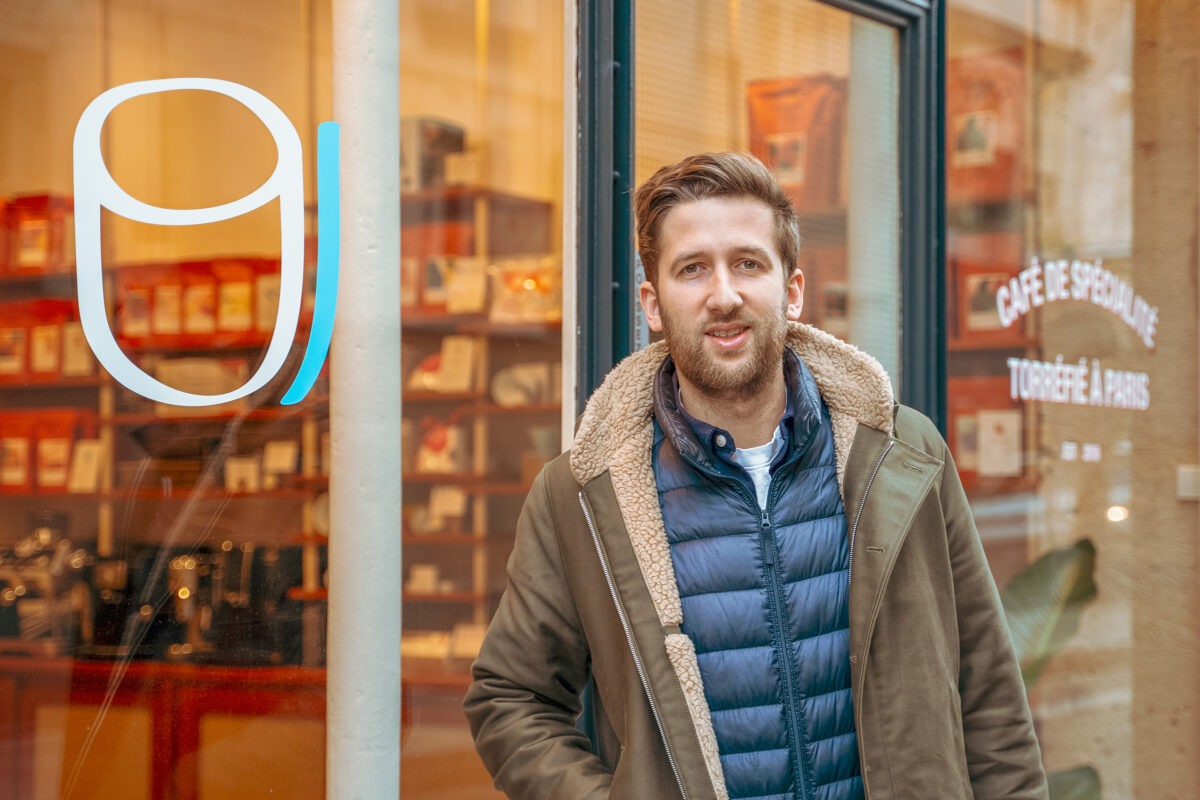
Kawa Coffee started out in 2016 as a specialty coffee wholesaler in Paris, France, for cafes and restaurants. Now, the company operates retail on an online store and at a coffee shop. It also runs a delivery service that supplies offices with freshly roasted coffee every month.
Co-founder Alexis Gagnaire leads its young staff of around 20 members who average 27 years old, with a focus on creating a team where everyone has an equal say. Alexis, who comes across as a good-natured elder brother, has a stellar resume of accomplishments in the coffee industry, including a third-place finish in the 2019 World AeroPress Championship and a silver medal in the French Roasting Championship 2021. We’ve spoken to Alexis to find out a philosophy underpinning how he sees coffee and how he builds his team.
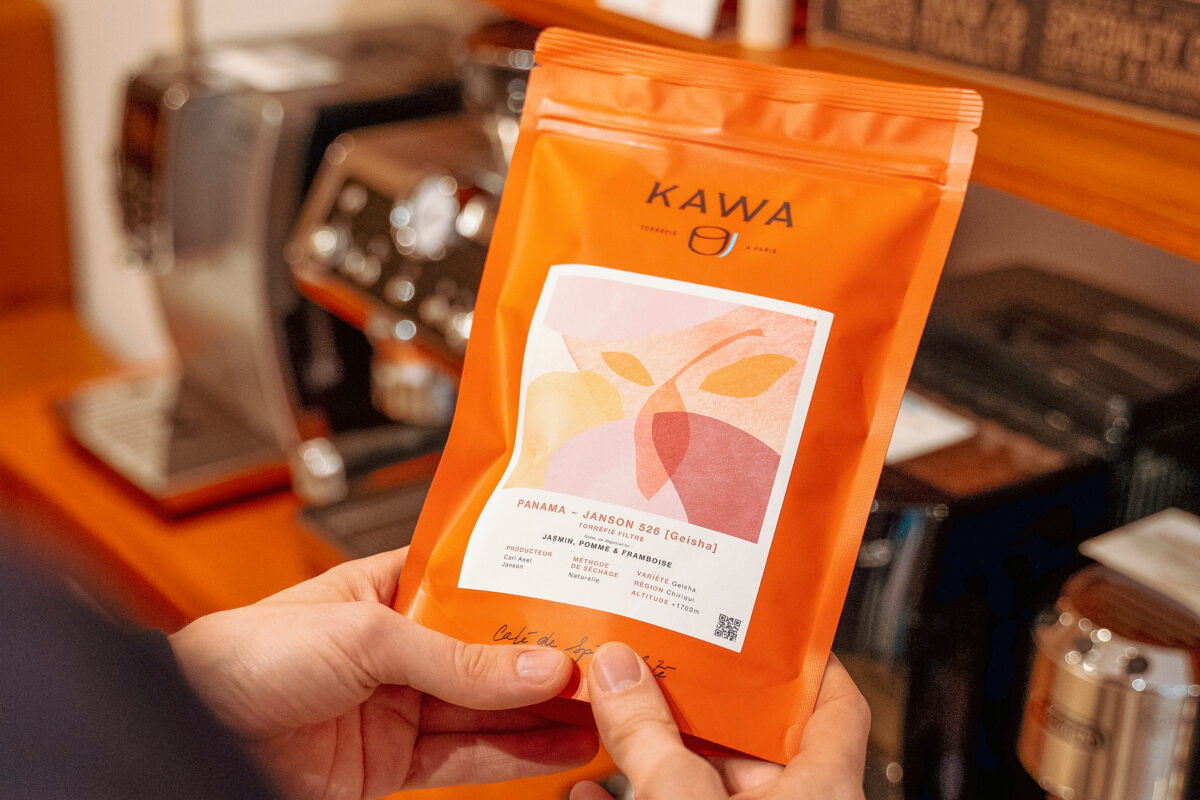
To democratize specialty coffee
Although France is famous for its gastronomic culture, good coffee was hard to find in the capital Paris. That surprise was a trigger for Alexis to found Kawa Coffee. The company consists of three main operations.
These are wholesale for cafes and restaurants; retail on an online store and at a coffee shop as well as boutiques in Paris; and delivery service for offices.
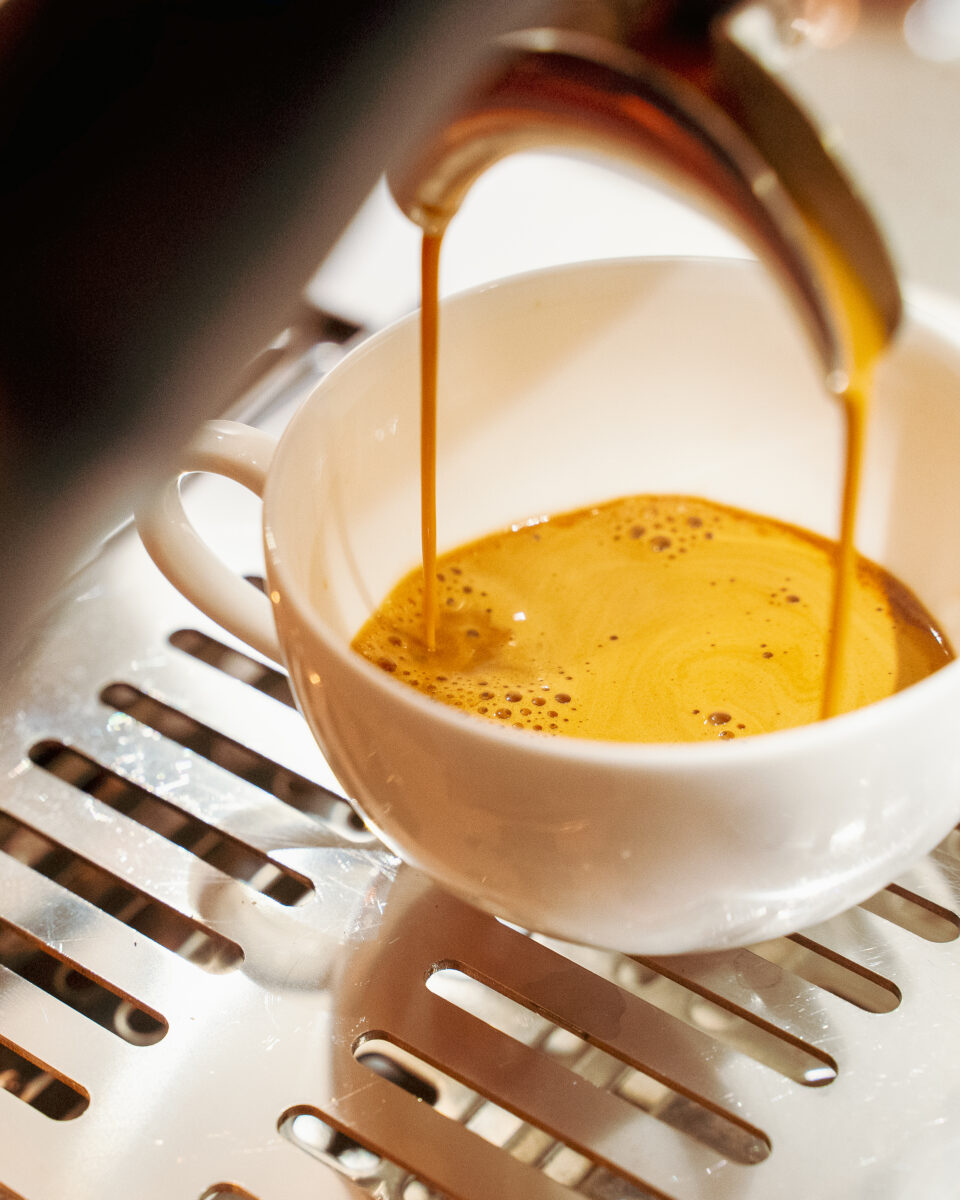
In its delivery business, Kawa Coffee leases coffee machines of De’Longhi and JURA to offices in Paris and other French cities, satiating its clients’ thirst for freshly roasted coffee every month.
“We serve a wide spectrum of coffees, from casual to rare to high- and competition-level quality, all for an affordable price. We ban the use of capsule coffee. Delivery helps us reduce waste. So it’s environmentally friendly, too.
We receive positive feedback from customers. They say they not only like coffee itself, but also enjoy the sound of grinders, the aromas of coffee and its taste. After getting used to specialty coffee, some people say they can’t go back to the kind of coffee they drank before. And that’s exactly what we aim for. It’s really rewarding to see people become interested in coffee and start enjoying delicious coffee at home, too.”
People spend a bulk of their day at the workplace. So if they can drink good coffee in their offices, some of them will probably make it a habit to seek out good coffee. It was with this expectation that Alexis and his partners started the delivery service, with a goal to make specialty coffee available to a broad range of people.
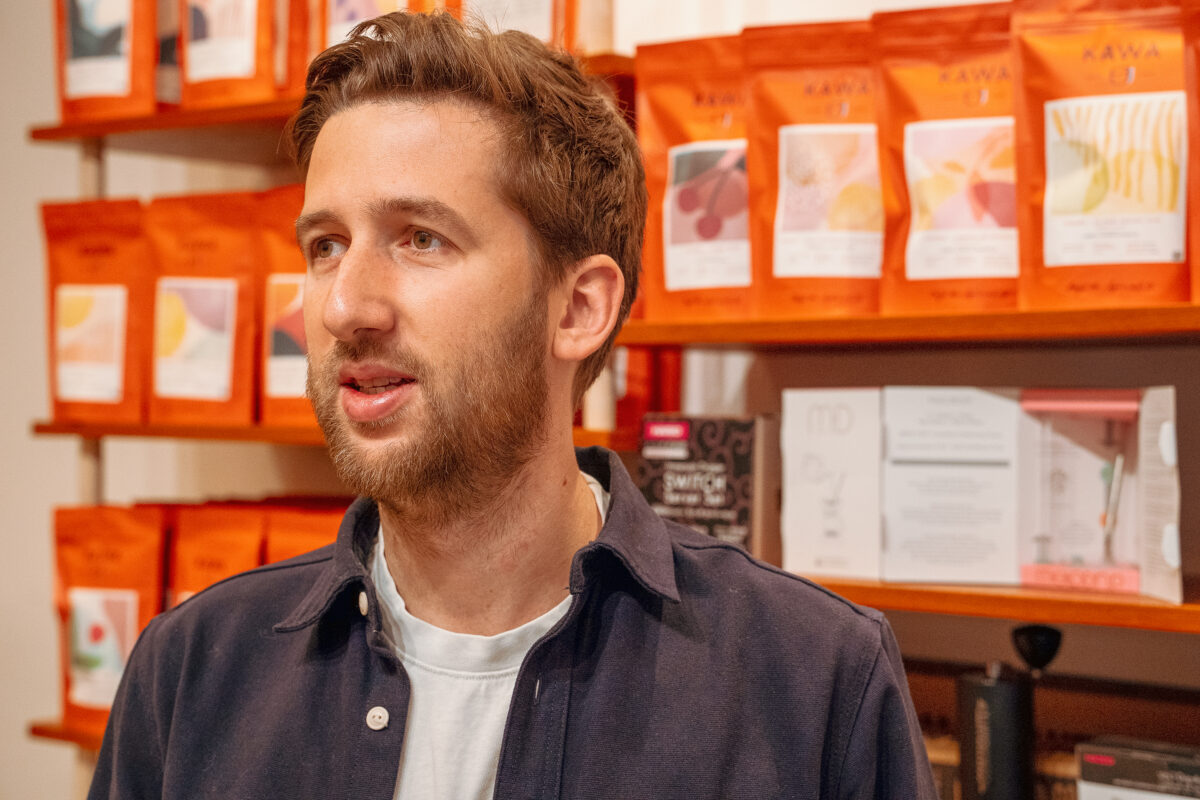
To achieve that, Kawa Coffee is careful not to limit its lineup to a narrow range of tastes. The company’s online store sells more than 30 types of various coffees as well as a wide selection of tools to brew delicious coffee.
“We try to have a well-balanced lineup in terms of fermentation and processing methods, ranging from special to orthodox. When it comes to processing methods, we obviously offer both natural and washed. But we also provide a wide variety of natural coffees with different texture, body and flavors, from funky notes to delicate tastes.
Some coffee tastes good only at a certain time of year. With that in mind, we have two categories. One is a classic lineup that’s more or less the same throughout the year and the other is seasonal limited varieties. Seasonal coffee stays on the menu for at least three months so that if customers love it, they can enjoy it for a while.”
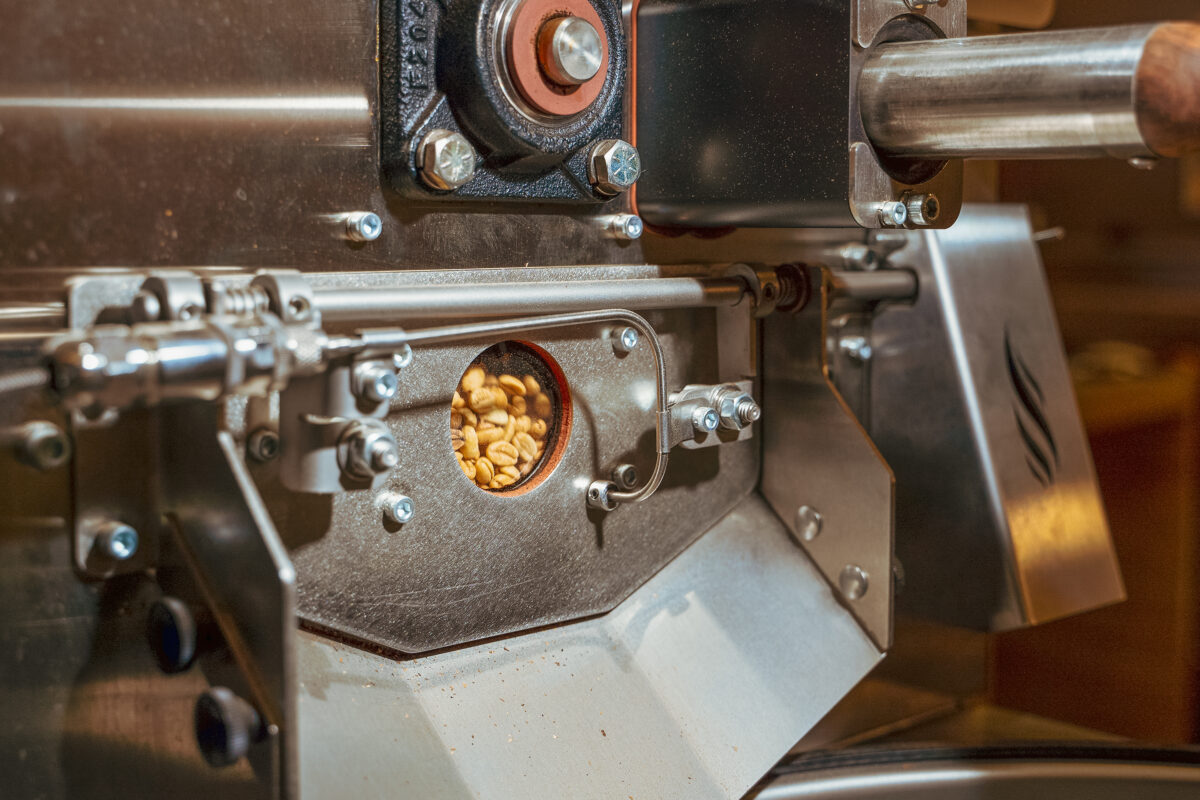
To bring specialty coffee closer to more people, Kawa Coffee organizes roasting workshops for the general public. After participants take a 10-hour course, they get to roast coffee and cup it themselves. One-on-one lessons are also available on demand.
“In addition to experienced professionals, our workshop also attracts many newcomers who haven’t tried roasting before. We used to organize it every week. But many of the participants are now able to roast by themselves. So its frequency depends on demand.
Our goal is to democratize coffee. We want everyone to enjoy specialty coffee.”

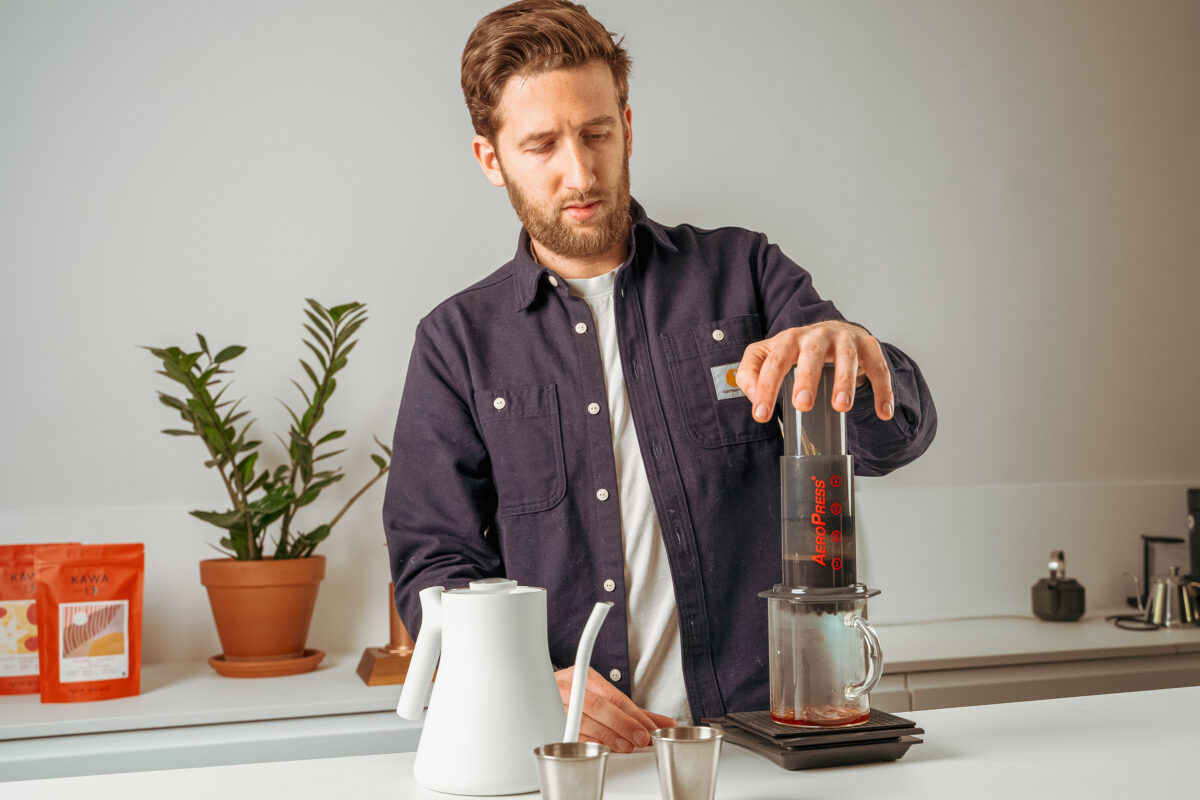
Always respectful
Alexis was born and raised in the northern French region of Normandy. His love affair with specialty coffee goes back to 2015, when he was in London. He was into espresso at the time, and he was captivated by specialty coffee’s fruitiness and acidity.
“After I returned to Paris, I found that there weren’t many places that offered good coffee. I thought it was a business opportunity. I also wanted to be able to drink my favorite coffee in France without buying from the UK or elsewhere. That’s one of the reasons for starting Kawa Coffee.”
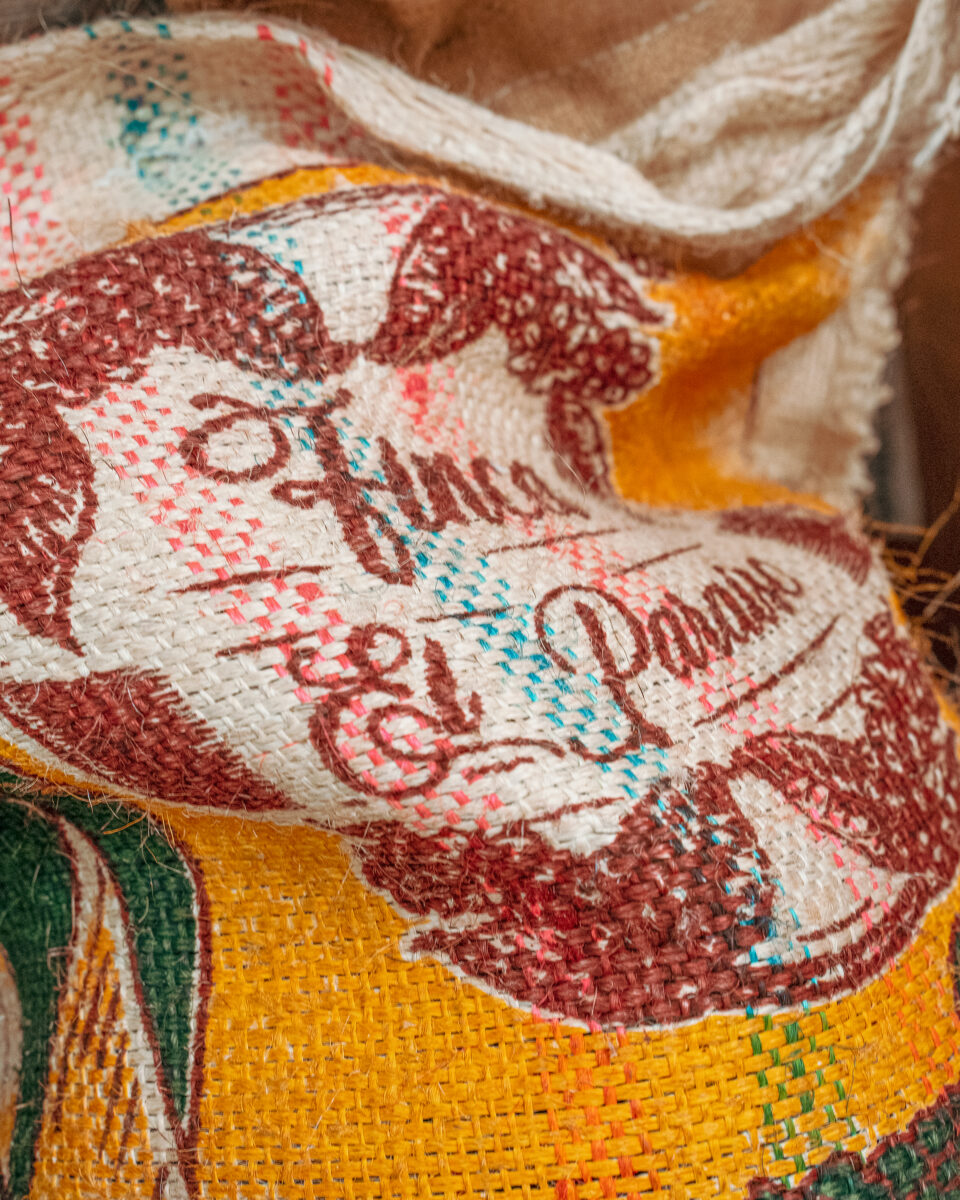
Alexis was born into a family of renowned chefs. His paternal grandparents and uncle are all Michelin-starred culinary masters. He says enjoying food and gastronomy is something that runs in his blood. Soon after he started learning about coffee, he traveled to Colombia.
“I found it important to learn more about how coffee is grown if I wanted to get better at roasting. French people are famous for being fussy about wine. And many of us enjoy visiting and talking to wine producers. It’s the same with coffee. After I read many books and articles about coffee, I realized straight away that producers hold the key to quality.”
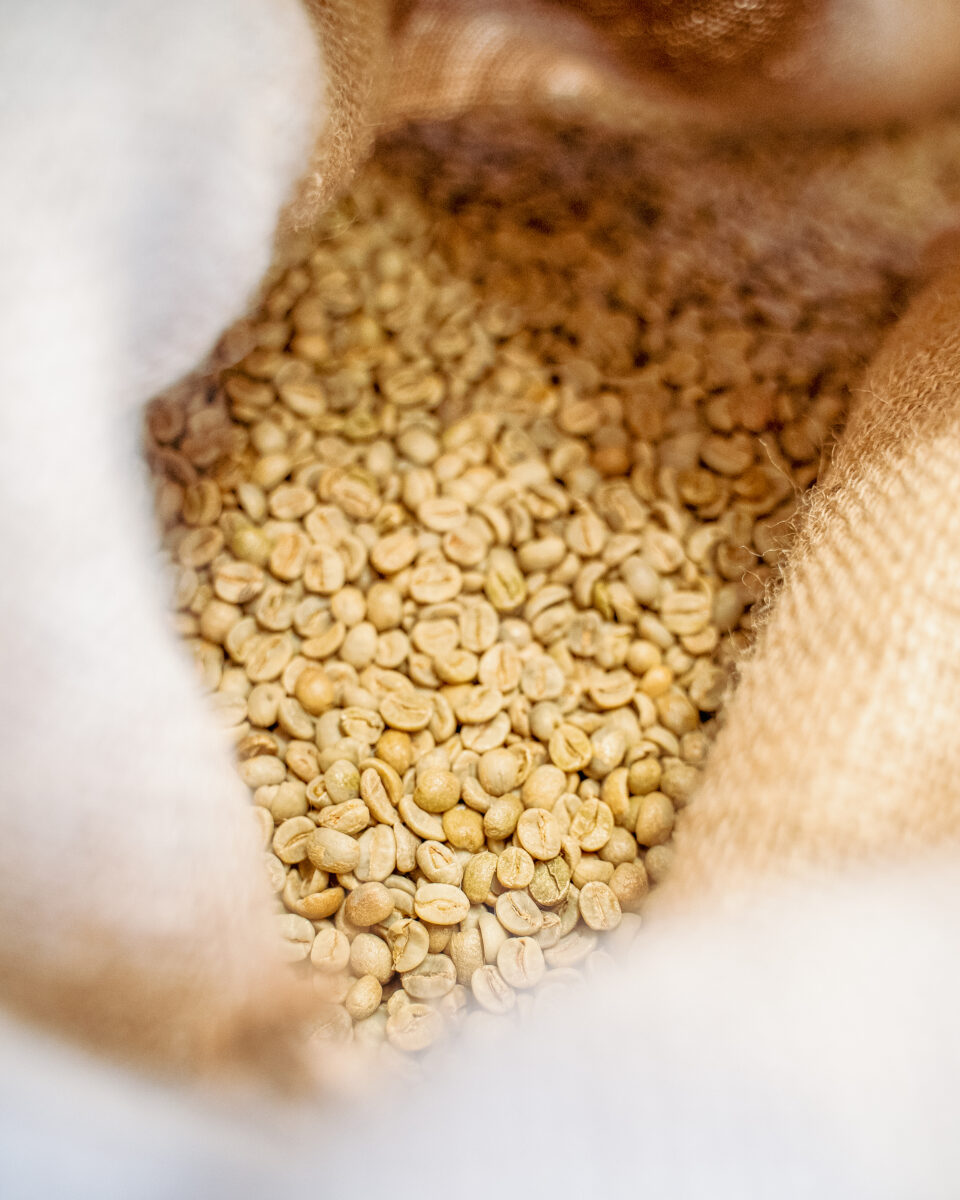
Alexis notes that direct trade with producers makes up around 30% of Kawa Coffee’s green coffee purchases. He says the company has clear criteria when choosing which producers to buy from.
“It ultimately comes down to quality. But we first pay attention to how coffee is produced. For example, we look at things like whether producers use organic fertilizers and renewable energy, or whether they recycle water.
Of course, many small-scale producers can’t afford to adopt such practices. So these are not absolute requirements for us. As long as producers are respectful of their soil, the quality of coffee will be good. Besides, it’s an important part of our job to spread a story behind small-scale producers and their coffee.
We also focus on the consistency and character of coffee. These are something that’s closely linked with how it is produced. We are always looking for new experiences and new varieties. For instance, we’ve lately been in touch with a Costa Rican producer who is growing Ethiopian varieties.”
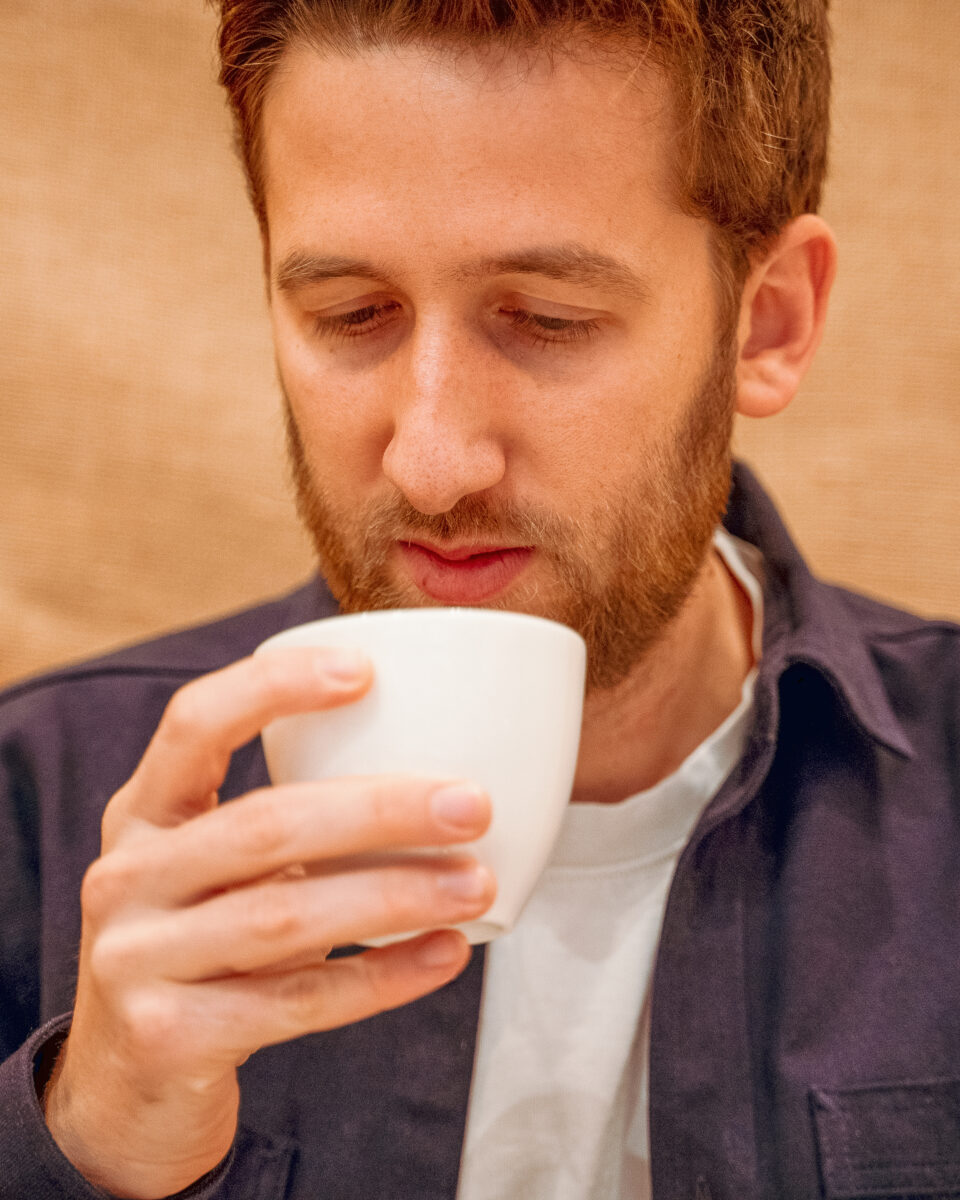
Alexis acknowledges that pursuing a career in gastronomy was one of his options. But what eventually steered him onto his current path?
“The restaurant industry has long-working hours and no weekends. I thought if I worked at a restaurant, I would have to sacrifice a lot of things. That’s why I have respect for those working hard in the industry to make things happen.
Cooking food and coffee are the same in that they both involve creations. With coffee, if a single person does something wrong somewhere in a process that begins with the producer and ends with the barista, it ruins the taste of the cup. That’s why respect is essential.
Running my own company comes with its share of sacrifices. But I will gladly accept them if they are necessary for coffee to be good. Coffee is my work. But it is also something that I’m passionate about.”

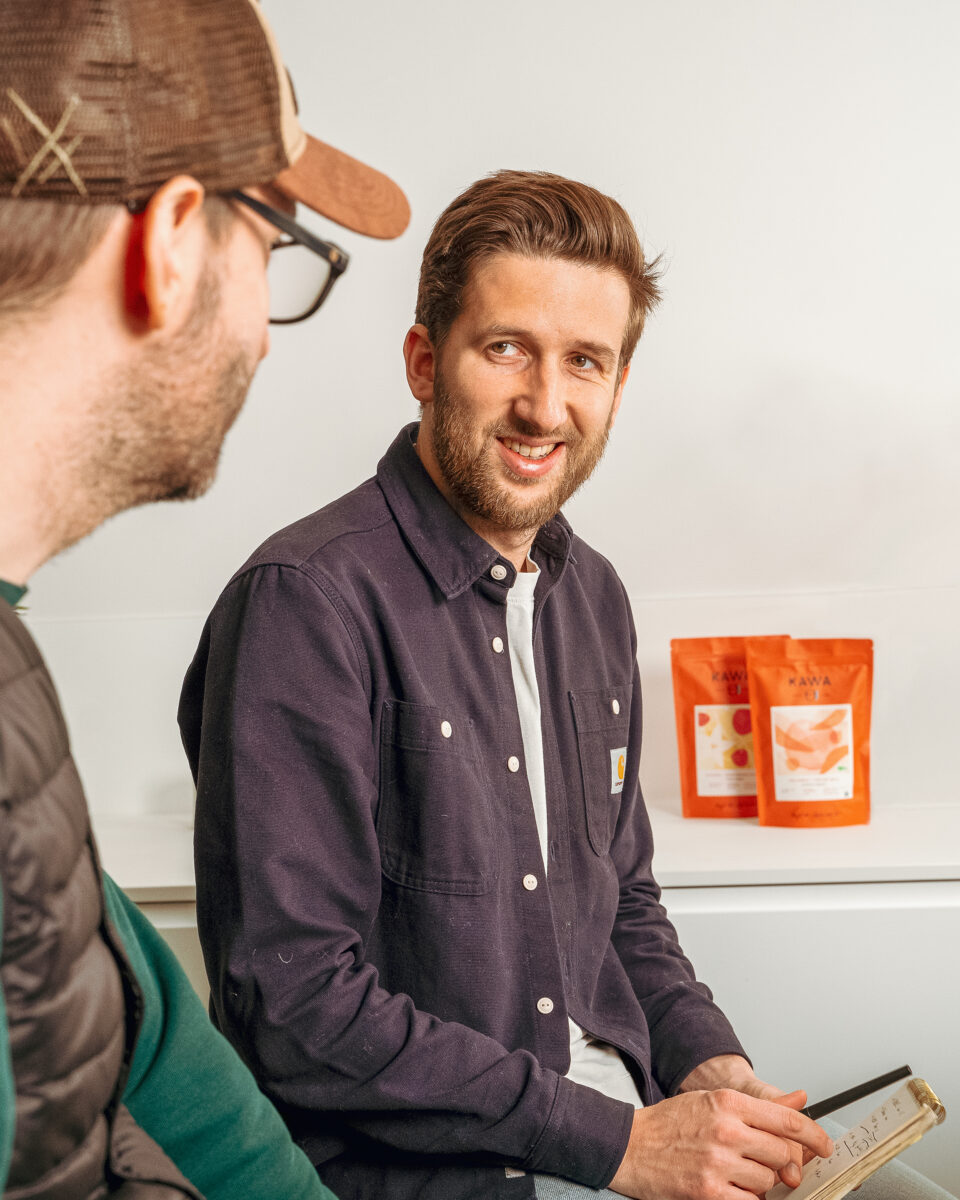
Equality nurtures team
One thing that sets Kawa Coffee apart from other companies is its working environment. With a staff of around 20 employees whose average age is 27, the company has an open and comfortable atmosphere, visible in a group photo on the recruitment page of its website.
“I forced everyone to smile for that photo,” Alexis laughed. “But joking aside, I think my employees feel happy to be closely involved with every part of the process, from selecting green coffee to selling roasted batches.”
To instill employees with a sense that they are working as one, Alexis tries to create an inclusive team built on equality. During weekly meetings and day-to-day operations, he frequently asks his staff their opinions about coffee and what they think needs to change.
“We do have different levels of responsibility in our workplace. But I think it’s important to have an open environment where staff feel free to speak their mind, whether it’s about green coffee purchases, roasting or quality control. I treat everyone the same way, including new members. When someone comes up with an idea or suggestion, I always listen. And if that idea is good, I’ll adopt it.
Clearly, things don’t work out if someone always disagrees on everything. But fortunately, it has never happened to us before. I’m grateful that all my staff sympathize with my ideal and do their part to maintain equality.”
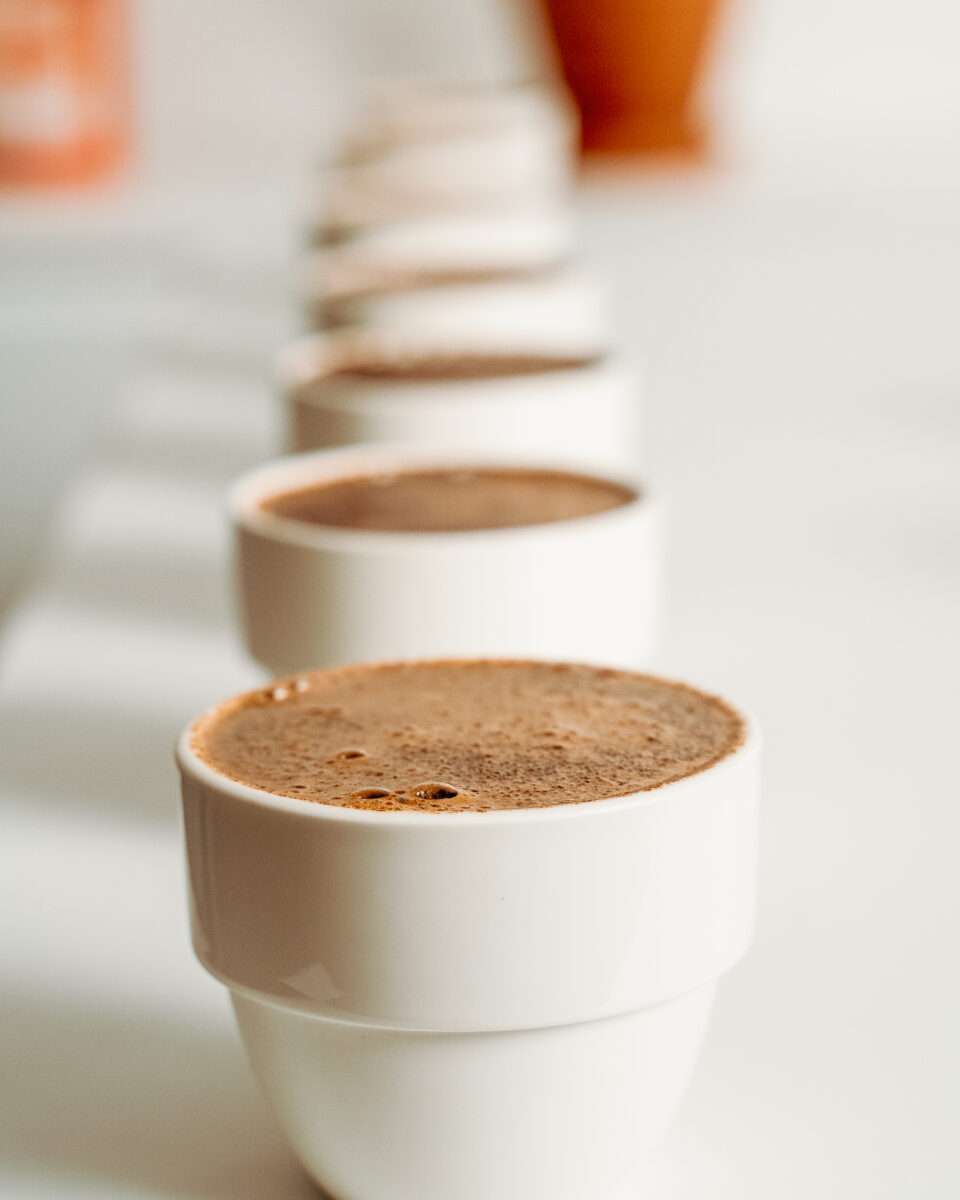
In Alexis’s mind, he is not doing anything special. But Kawa Coffee’s organizational culture often comes as a pleasant surprise to new employees coming from other companies.
“They often talk about how we are different from their previous workplaces and how they enjoy working for this team. Some members may not be as deeply engaged in the team as others. But I respect that, too. Just as people feel different degrees of attachment to their family, it’s natural for employees to have different levels of commitment to the company. Either way, I’m sure all my staff see Kawa Coffee as a family.
I think this environment also benefits business, too. If employees feel comfortable at the workplace, they become more focused on work and coffee with more patience. That will improve the quality of their work and performance, and help the team to grow for good.”

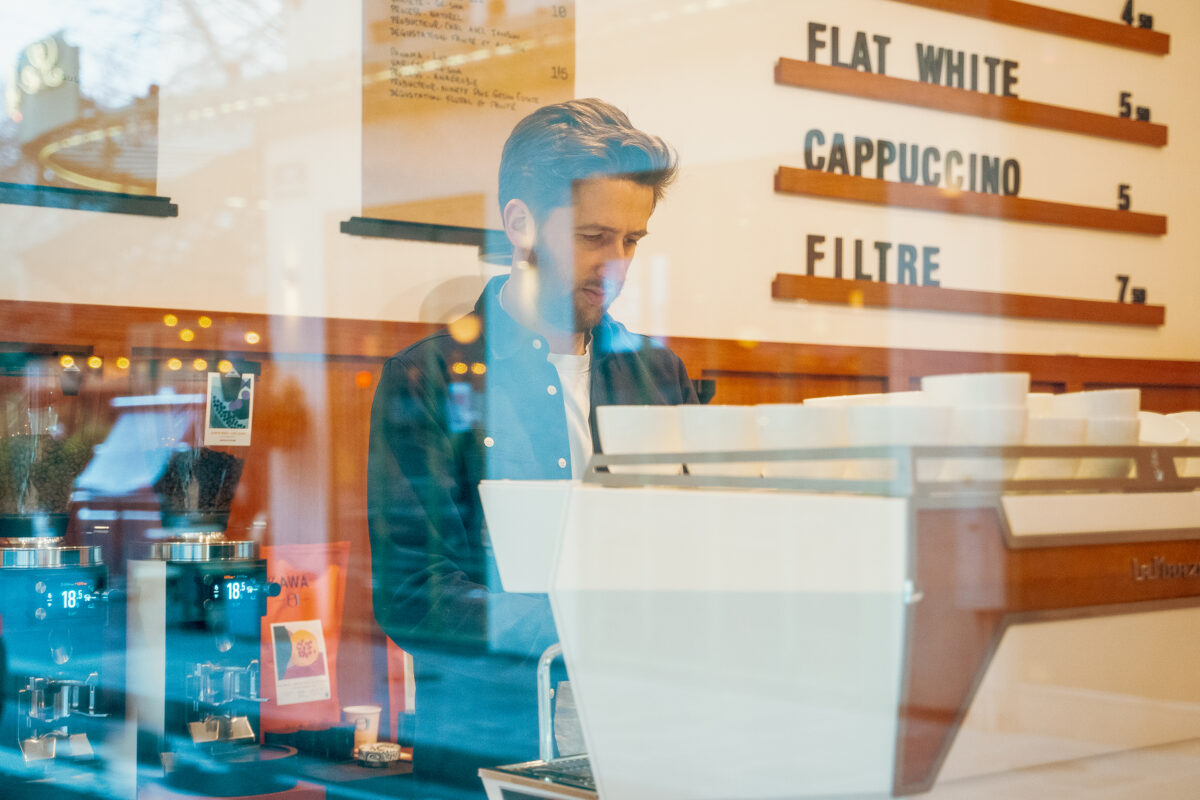
Respecting individual characters
Alexis used to work in finance in London for a year, having chosen a profession starkly different from the restaurant business, his family’s line of work. Still, he eventually threw himself into the world of specialty coffee. And this career trajectory seems to have brought him back full circle to his roots, the food and beverage industry.
In addition to Kawa Coffee, Alexis also operates a small record label, engaging in what he calls “records digging.” Through this activity, he seeks out and casts new light on records from the past that may not have been popular in their times but could be interesting today. On the surface, there appears to be no commonality between coffee and music. But for Alex, there is.
“Both coffee and music are a matter of tastes. With coffee, I focus on the present, rather than the past. But it still is similar to music because what I do in either field is to try to look for new things and share producers’ work with the world. I sometimes arrange old music to create new music, which is similar to what I do with coffee, too.”
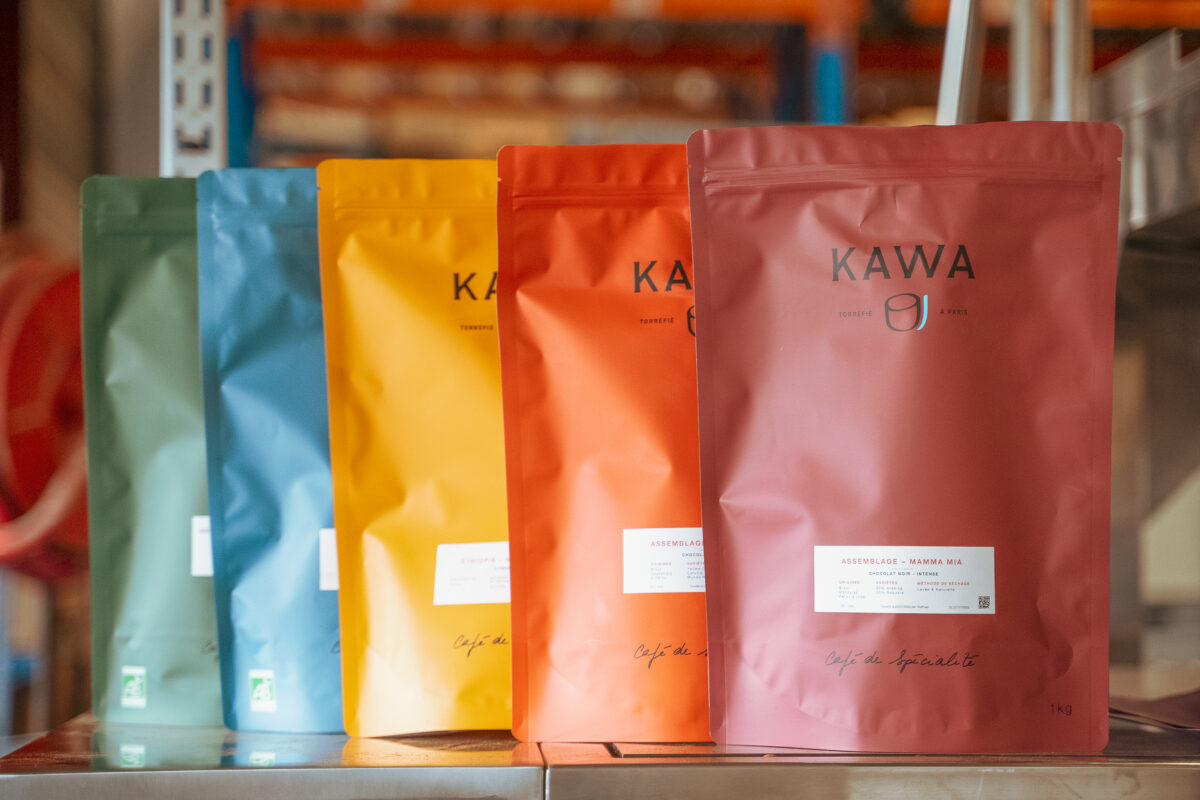
Alexis never imposes his opinion on others, and he applies this democratic stance to music and relationships. For Alexis, who roasts coffee in a way that respects its uniqueness and character, it must be natural to give his staff equal opportunities so that they can demonstrate their unique strengths.
“Kawa Coffee has a broad lineup of coffee, which makes it harder to control quality and set roasting profiles. Still, we want to offer people chances to enjoy various tastes and sensory experiences.”
Always in pursuit of diamonds in the rough, Alexis’s attitude offers an important lesson: In an inherently diverse world, the word “diversity” does not exist. A rainbow of coffee experiences at Kawa Coffee must encourage us to enjoy being ourselves, being different.
Originally written in Japanese by Tatsuya Nakamichi
Photos by Maéva Turam
MY FAVORITE COFFEE
I like my first cup of the day I drink at work. That’s partly for quality check. But it’s also because I have grinders, good water and other machines and materials there that I need to make delicious coffee.
My favorite variety is Sudan Rume. It has a very delicate body and silky touch. It’s complex, but I can drink it three to four cups a day.

Kawa
- [Open]
- Wed, Thu, Fri: 9:00AM-11:30AM, 12:00PM-5:00PM, Sat, Sun: 10:00AM-5:30PM








